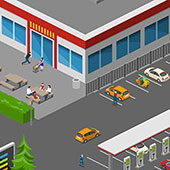We looked at our project area from a macro perspective and identified all the components, systems and subsystems involved in a housing complex. Secondary research was done on each of them as well as existing approaches and alternatives. Primary research was done to understand the people’s perspective and get realistic insights about a middle class Indian’s way of living in a metropolitan city.
Preliminary analysis inferred that there are enough sustainable alternatives available but the real issue is people not implementing them into their lifestyle. From deeper analysis of research and causal loop diagrams pertaining to adoption of sustainable alternatives emerged our problem sub-areas: reluctance among people due to various reasons and lack of awareness on a society level.
Our solution is a timeline based framework that NGOs or housing societies can use to increase the number of users of sustainable products and practices in a systematic manner. It focuses on people willingly accepting the change rather than forcing something upon them. Society consists of a spectrum of different kinds of people with different mindsets and they all have varying degrees of reluctance which can be correlated to the transtheoretical model that tells about the six stages a person goes through when undergoing change. We categorised our users based on that.
The framework consists of four phases, each targeting a different user group such that people can ease in with the passage of time. To facilitate this process, we have come up with certain sets of guidelines for each phase, a template that people can use to plan, and have visualised the transition over a period of time through a miniature society that we had created for ease of understanding. We have stated examples, possible approaches in each case and the indicators that could be used to prove that the change is happening.

